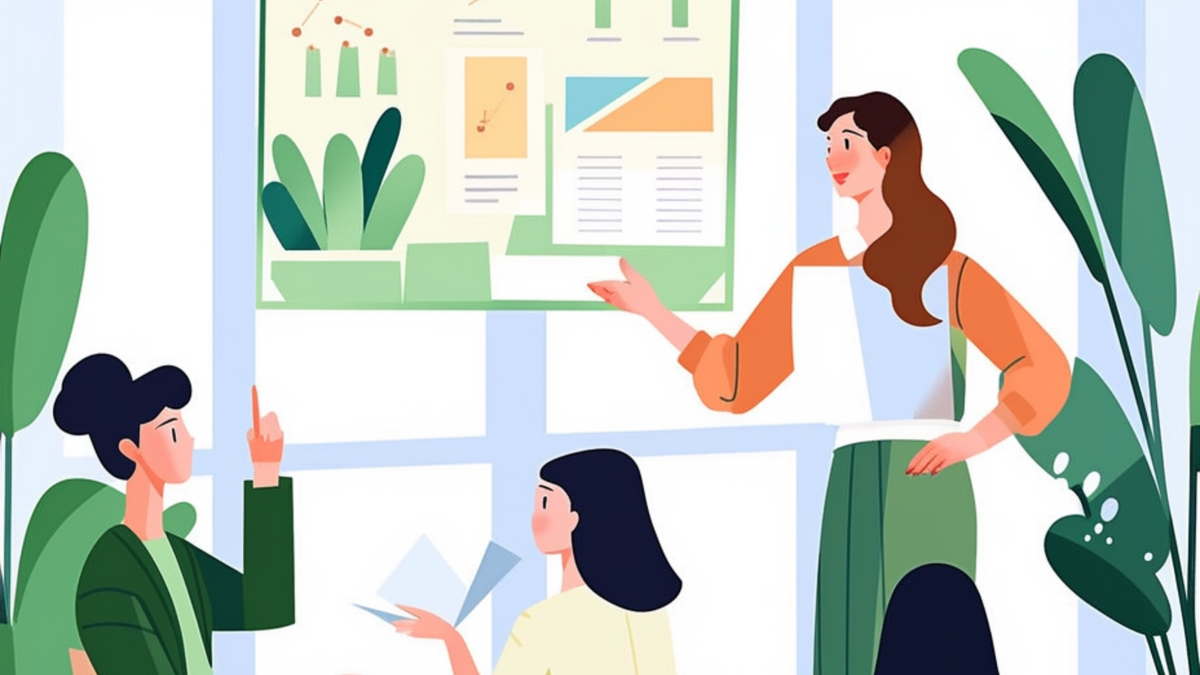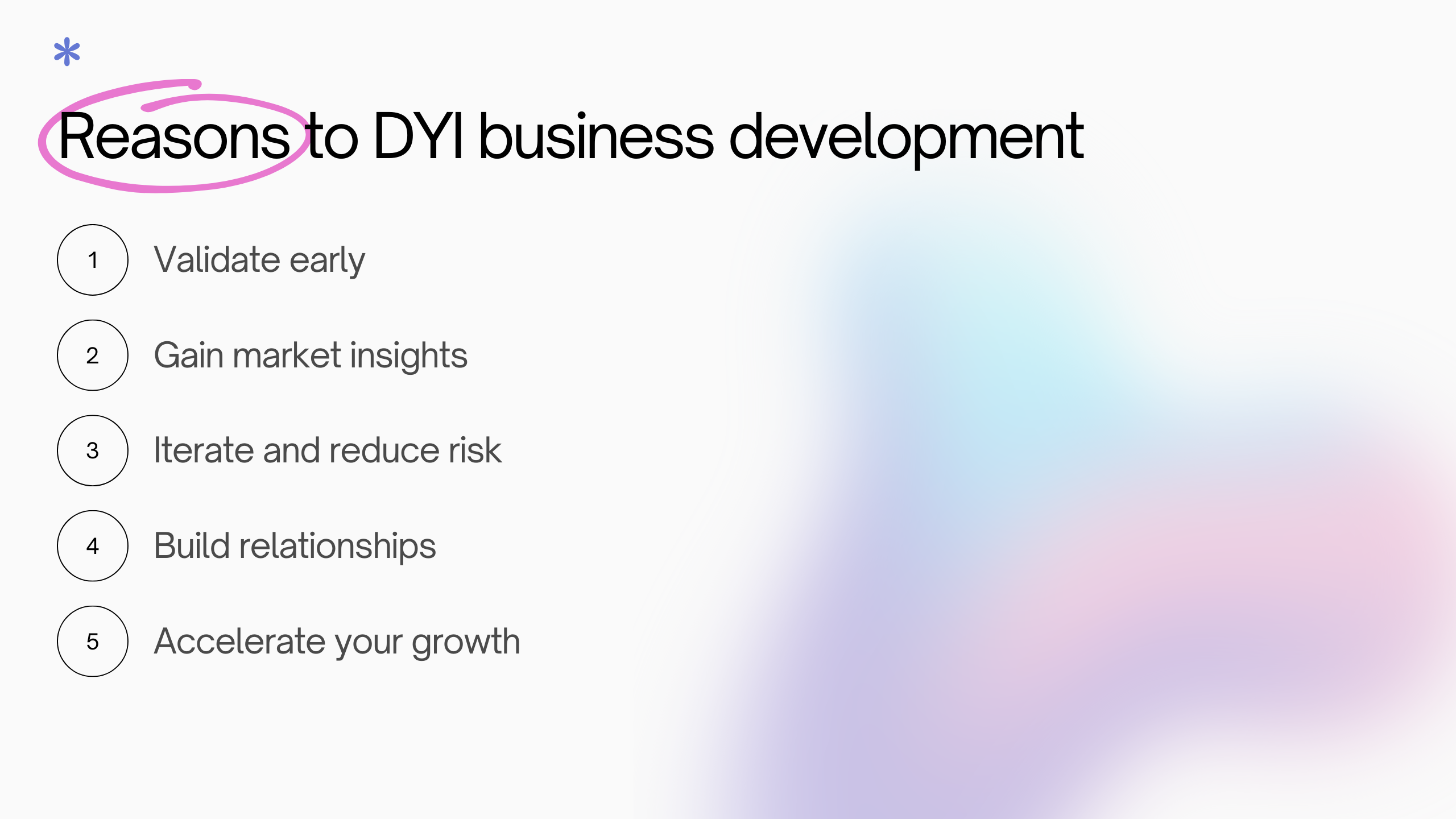The Power of Personal Connection: Why early stage founders should take charge of business development
Startup founders should do their business development to build critical relationships, learn their customers' needs, and establish credibility.

Many early stage tech startup founders ask me how and when should they hire a business development person. Most of these companies have not found product-market fit. As most founders are software engineers, their first instinct is to hire someone “experienced from a big tech company," so they can focus on the product. This is probably one of the worst early mistakes you can make as a founder, and I will tell you why.
What is business development?
TL;DR. Business development ("BD") is the art of making friends in business. It is the process of identifying and creating new growth opportunities for the company. It involves cultivating relationships, forging partnerships, expanding markets and increasing revenue streams. In this role, you are assessing market trends, analyzing competitors, and pinpointing gaps that the startup’s team and solutions can fill. Business development professionals may collaborate closely with sales, marketing and product teams to align with strategies.
How does business development work?
There are two main phases for business development:
- Partnership development ("deal")
- Partnership management ("relationships")
The sequence more or less follows these steps below:

- Prospecting: This is the initial phase where potential opportunities are identified. It involves researching and analyzing the market to find potential clients, partners or markets that align with the company’s goals and offerings.
- Lead Generation: This stage focuses on gathering specific information about potential leads. This may include identifying key decision-makers, understanding their pain points, and assessing their potential interest in the company’s products or services.
- Qualification: Once leads are generated, they need to be qualified. This involves assessing the leads’ fit with the company’s offerings, their budget, their timeline and their readiness to engage in a business relationship.
- Engagement: The company begins to engage with the qualified leads. This could involve introductory meetings, understanding the prospect’s problems and needs, presenting solutions, and showcasing the value that the company can provide.
- Negotiation: As interest is established, negotiations come into play. This phase involves discussing expectations, terms, agreements, and pricing. The goal is to reach a mutually beneficial arrangement that satisfies both parties.
- Closing: Once negotiations are successful, the deal is finalized through a signed contract or agreement. This marks the point at which the new business opportunity is secured.
- Onboarding: After closing, the focus shifts to onboarding the new client or partner. This involves defining expectations, establishing communication channels and ensuring a smooth transition to an active working relationship.
- Relationship Management: Beyond the initial deal, business development also encompasses nurturing and maintaining the relationship with clients or partners. This involves providing ongoing support, addressing concerns, and seeking opportunities for upwelling or cross-selling.
- Expansion: As the relationship matures, there may be opportunities to expand the scope of the engagement. This could involve exploring additional projects, markets, or collaborations that further benefit both parties.
The partnership development phase covers steps 1-6. The relationship management phase covers step 7-9. Business development professionals tend to specialize in one of these phases. There are very few business development professionals that can do both well, especially at scale.
If the startup does not have product market fit, the founder(s) should do BD.
For most early stage companies, the founder (aka CEO) should take on the business development role. At the core, business development is about understanding the needs and problems of your prospective customers and how to create solutions that will solve their pain points.
Benefits of DIY business development

- Validate your product early: Business development activities allow founders to interact with potential clients, partners, and stakeholders before the product is fully developed. This early engagement can provide valuable feedback and insights that shape the product’s development and help align it with market needs.
- Gain market insights: Engaging in business development exposes founders to a deeper understanding of the market landscape, including its challenges, trends and opportunities. This firsthand knowledge can guide product refinement and ensure it resonates well with the target audience.
- Iterate and reduce risk: The feedback received through business development interactions can drive iterative improvements to the product. By involving potential stakeholders early, founders can reduce the risk of developing a product that doesn’t meet market needs. In addition, founders can make necessary adjustments to the product’s features, pricing and positioning based on real-world insights, increasing the chances of achieving product-market fit.
- Build relationships with customers: Early business development efforts allow founders to establish relationships with potential clients, partners and even investors. These relationships can be nurtured over time and serve as a foundation for future collaborations and growth.
- Accelerate go-to-market and growth: When product-market fit is eventually achieved, founders who have already engaged in business development will have a heads start. Founders will have a better understanding of how to position their product, identify target customers and develop go-to-market plans for efficient launches. They can leverage the relationships and insights built early to accelerate growth and capture opportunities more effectively.
Pursuing business development before product-market fit requires careful balancing of resources and efforts, but the benefits of early engagement with potential customers and partners can be substantial. As the product evolves through numerous iterations at breakneck speed, founders are in the best position to keep up with the latest and articulate the product's benefits to prospective customers. In addition, there are many wonderful tools that can automate the more mundane parts of the business development process. It’s important for founders to approach this phase with an open mindset, a willingness to learn, and a focus on building relationships that will drive their startup’s growth in the long run.
I hope this is helpful context as you think about growing your team and business. If you think another founder will find this helpful, please forward and share.